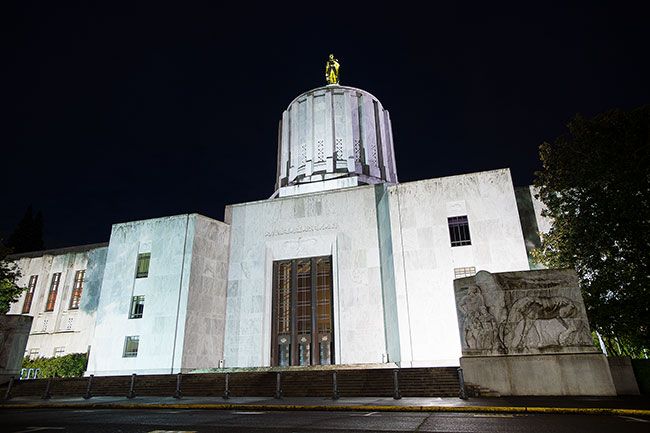Bladine: Legislative session ending with a bipartisan flurry

Unlike Congress, Oregon’s 2024 Legislature is winding down with a strong showing of bipartisan attention to public interest legislation.
Thursday, as this column goes to production, the Oregon Senate is hearing and expected to approve sweeping campaign finance with HB 4024A, already passed overwhelmingly by the House. Political wonks were surprised this week when much-opposed loopholes in the proposed law suddenly were negotiated into acceptable campaign limits and regulations.
Hallmarks of HB 4024A, say supporters from both sides of the aisle, are “reasonable contributions limits, transparency and accountability, without simply shifting campaign spending into dark money activities … (it) has agreement from good government groups, labor, business, community organizations, Democrats and Republicans.”
The law, if approved Thursday and signed by the governor, would establish strict and detailed limits on campaign contributions, but more importantly, it would require clear communications about the sources and ultimate uses of political-influence funding.
Meanwhile, little-known SB 1595 already was approved — 22-8 in the Senate and 45-9 in the House — and headed to the governor’s desk. The so-called “Family Financial Protection Bill” updates flawed debt collection statutes; creates new protections from financial ruin for Oregonians with unpaid debts; and provides significant options for people who believe themselves victimized by illegal debt-collection practices.
There will be an increase in wages protected from garnishment, shelter for $2,500 of money needed for basic needs while repaying debt, and protections against losing homes in debt collection battles.
Under SB 1595, someone injured by unlawful collection practices can sue for damages, including punitive damages, with new protections from paying extravagant legal costs to a defendant. A successful plaintiff in such cases can win “reasonable attorney fees and costs at trial and on appeal,” but now a prevailing defendant can collect such costs “only if the court finds that the plaintiff had no objectively reasonable basis for bringing the action or asserting the ground for appeal.”
Objective reasonability is a high bar for unscrupulous debt collectors to overcome, so look for the legal community to jump into this new civil suit edge for debtors.
SB 1595 also extends the deadline for filing such actions from one to three years from date of the injury.
From afar, we see a deadlocked Congress unable even to agree on facts, much less how to act on them. It’s reassuring to be reminded of the idea traced back to Thomas Jefferson that government closest to the people governs best.
Jeb Bladine can be reached at jbladine@newsregister.com or 503-687-1223.









Comments
Don Dix
It was 'especially important' that the sessions also 'focused' on a change from daylight savings time change (sarc), which was 180 degrees from last year's attempt to go strictly with daylight time. That seems pretty much like spinning in circles - must have made them dizzy and light-headed!